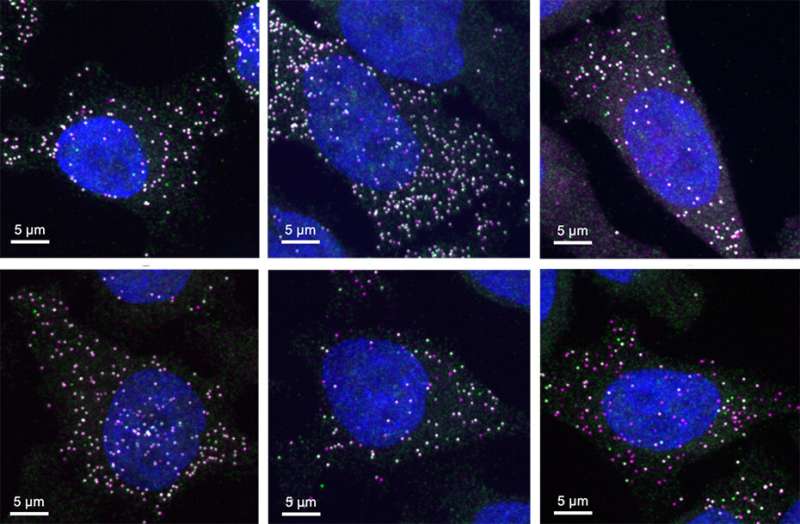This article has been reviewed according to Science X's editorial process and policies. Editors have highlighted the following attributes while ensuring the content's credibility:
fact-checked
peer-reviewed publication
trusted source
proofread
Translating an RNA boosts its degradation, find researchers

In the cell, messenger RNAs—or mRNAs—are translated into proteins and eventually degraded, but the relationship between translation and mRNA decay remains cloudy. FMI researchers developed an innovative tool to control and visualize mRNA translation and decay, one molecule at the time. The team discovered that translation promotes mRNA degradation—a finding that may help advance the development of RNA-based drugs.
The balance between translation and mRNA decay is essential for the cell's health, but it's unclear whether translation promotes or decreases mRNA degradation.
To address this question, researchers led by Pratik Dave in the Chao group developed an approach to control the translation of a specific mRNA. This tool allowed them to visualize proteins as they were being produced and image mRNA decay with single-molecule precision.
The translation of an mRNA reduced its stability, the team found. Mathematical models confirmed the experimental results, suggesting that the degradation rates of mRNAs increase each time the molecules are translated into proteins.
"It's fascinating that cells do not degrade RNAs based on how old these molecules are, but on how used they are," Dave says.
Further experiments showed that a type of small RNA molecules called microRNAs could trigger the degradation of mRNAs regardless of whether they had been translated.
The paper is published in the journal Molecular Cell.
The results suggest that translation promotes mRNA decay—a finding that could have implications in drug discovery. Strategies to stabilize therapeutic mRNAs after they are translated could be beneficial for RNA-based drugs such as mRNA vaccines against the coronavirus, the researchers say.
More information: Pratik Dave et al, Single-molecule imaging reveals translation-dependent destabilization of mRNAs, Molecular Cell (2023). DOI: 10.1016/j.molcel.2023.01.013
Journal information: Molecular Cell


















